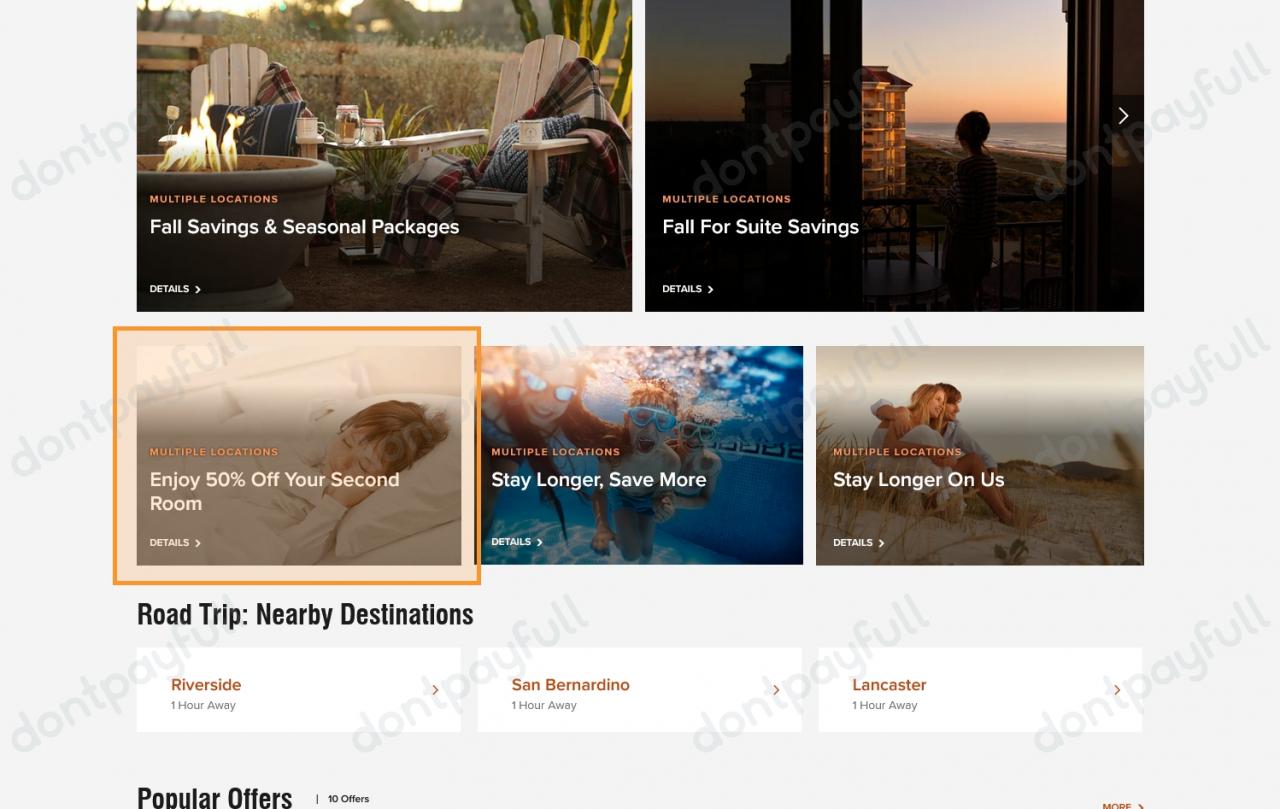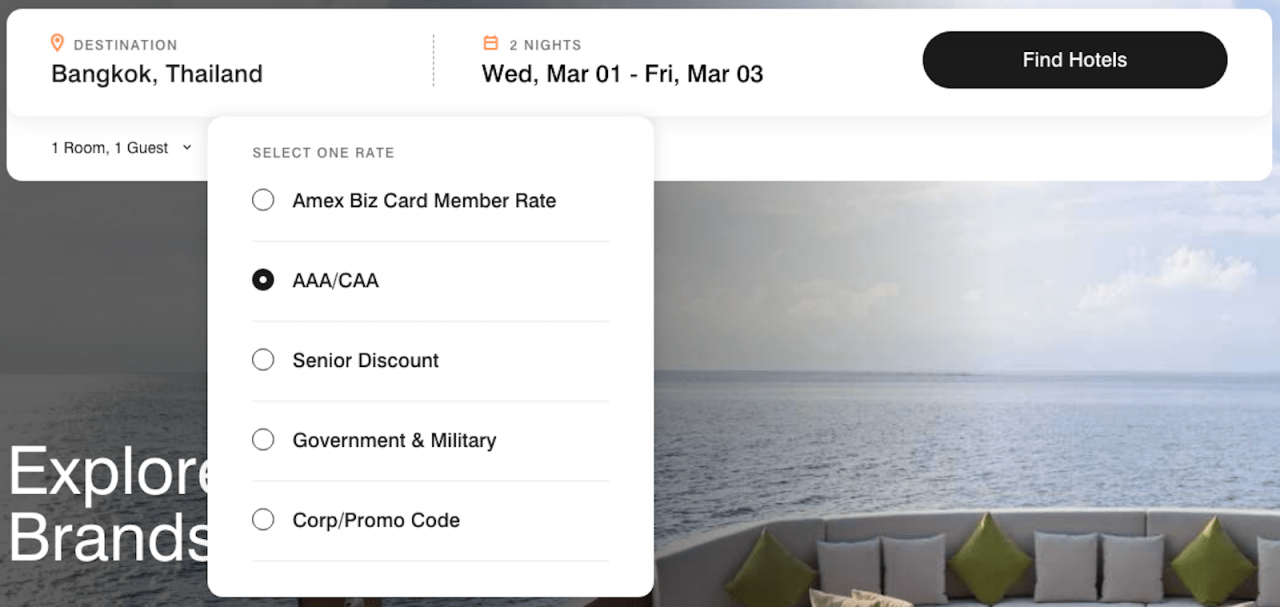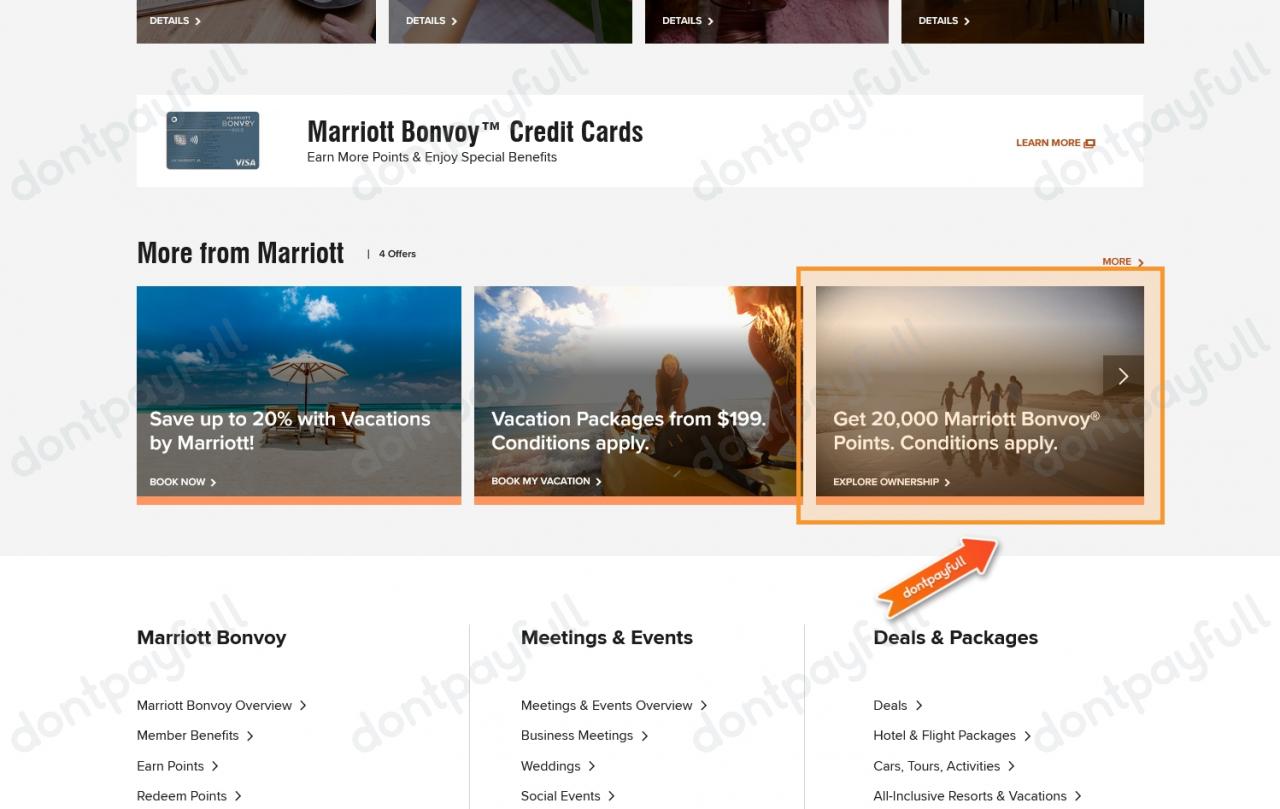Marriott Nurse Discount A Deep Dive
Marriott nurse discount offers a compelling opportunity for nurses to save on stays and experiences. This program, if it exists, details a range of discounts on room rates, dining, and activities. Understanding the program’s eligibility criteria, types of discounts, and application process can unlock significant savings for nurses. Whether you’re a travel nurse or a seasoned healthcare professional, the benefits of this program could make a real difference in your lifestyle.
This exploration dives deep into the specifics of the Marriott nurse discount program, examining its features, benefits, and potential for improvement. We will analyze how this program stacks up against competitors’ offerings and delve into nurse perspectives, providing insights into the program’s accessibility and inclusivity for diverse nurses. The discussion also considers promotional strategies, illustrative examples, and potential improvements to enhance the program’s effectiveness.
Marriott Nurse Discount Program Overview

Source: dontpayfull.com
Unfortunately, a dedicated, publicly available Marriott nurse discount program does not appear to exist. While Marriott frequently partners with various organizations for employee and member discounts, there’s no specific program explicitly targeting nurses. This means that nurses seeking discounts at Marriott properties are unlikely to find a program tailored to their profession.
Eligibility Criteria for Potential Discounts
Marriott partners with numerous organizations, and nurses might find discounts through these partnerships. These discounts often involve affiliations with employee groups or professional organizations. Nurses could potentially be eligible for discounts through employer-sponsored programs or through loyalty programs that include nurses as members.
Types of Potential Discounts
Potential discounts may vary depending on the specific partnership. These could include discounts on room rates, potentially through group booking or corporate agreements, and could extend to discounts on dining options at Marriott restaurants, depending on any relevant partnership. Discounts on activities, such as special event packages or excursions, are also possible, though not guaranteed.
Applying for or Redeeming Potential Discounts
Nurses seeking discounts should check with their employers, professional organizations, or loyalty programs. Often, these organizations manage the application process and the redemption of the discount. Checking Marriott’s website for any relevant partnerships is also recommended. Direct inquiries with the Marriott property in question may also reveal any potential discounts, but these are unlikely to be exclusive nurse discounts.
Potential Partnership Programs
A table detailing specific nurse discount programs at various Marriott locations is not available, as there are no known dedicated programs for nurses. The lack of a widespread, dedicated nurse discount program means such a table would be largely inaccurate or incomplete.
Comparison with Other Hotel Chains
The Marriott Nurse Discount program stands as a significant perk for healthcare professionals, but how does it stack up against similar offers from other major hotel chains? Understanding the strengths and weaknesses of the Marriott program relative to competitors provides a clearer picture of its value proposition. A comparative analysis can help nurses make informed decisions about which hotel loyalty programs best suit their needs.
A comprehensive comparison reveals nuances in the specific benefits and eligibility criteria across various hotel chains. This analysis examines the Marriott program about Hilton, Hyatt, and others, highlighting unique aspects of Marriott’s offerings and their competitive advantages or disadvantages.
Marriott Nurse Discount Program Strengths and Weaknesses
The Marriott program, while generally well-regarded, has specific strengths and weaknesses in comparison with competitors. These differences often lie in the scope of the discount, the types of accommodations covered, and the overall value proposition for nurses. Understanding these facets is crucial for nurses seeking the best possible return on their loyalty to the program.
- Scope of Discount: Marriott’s program typically offers a percentage discount on room rates, often exceeding 10% in some cases. This is a common feature in many hotel chains’ nurse programs, making it neither a standout strength nor a glaring weakness. Other chains may offer different tiers of discounts based on length of stay or booking time, which can affect the overall value.
- Eligibility Criteria: The specific eligibility requirements for Marriott’s program vary based on the terms and conditions Artikeld in their nurse discount policy. While often requiring proof of employment as a registered nurse, some chains might have stricter requirements, such as a minimum number of years in practice or a specific type of nursing role.
- Redemption Opportunities: Marriott’s program may include perks like complimentary breakfast or other amenities that can be part of the overall value. However, some chains may have broader redemption opportunities that go beyond room discounts.
Comparative Analysis with Other Major Chains
Comparing the Marriott Nurse Discount Program with those of Hilton, Hyatt, and others involves evaluating various aspects of each program’s structure and benefits. This table provides a concise overview.
| Feature | Marriott | Hilton | Hyatt |
|---|---|---|---|
| Discount Percentage | Typically 10-15% on standard rooms | Variable, ranging from 10% to 20%, depending on the booking | Often 10-15% with potential for higher discounts with elite status |
| Eligibility Requirements | Proof of employment as a registered nurse | Similar requirements may involve verification of a nursing license | Generally similar, with some variations in specific requirements |
| Redemption Opportunities | Room discounts, potential for complimentary amenities | Room discounts, access to rewards program benefits | Room discounts, potential for free nights, or points accumulation |
| Unique Aspects | Focus on a broad range of properties worldwide | Strong emphasis on loyalty program benefits | Known for a high-quality hotel experience |
Unique Aspects of the Marriott Program
Marriott’s global presence offers nurses a significant advantage. Its extensive network of hotels worldwide means that nurses can utilize the discount across numerous locations, whether for professional conferences, personal travel, or other purposes. This global reach is a unique aspect that competitors may not match. The program’s adaptability to various needs makes it a valuable resource.
Nurse Perspectives on the Program

Source: fastly.net
The Marriott Nurse Discount Program offers a valuable opportunity for nurses to save on accommodations while traveling for work or personal reasons. Understanding the program’s benefits and potential drawbacks from a nurse’s perspective is crucial for making informed decisions.
This section explores the advantages and disadvantages of the Marriott Nurse Discount Program, providing insights into the program’s practical application for various types of nurses. It also addresses frequently asked questions, sharing real-world experiences to illustrate the program’s impact on nurses’ travel.
Benefits for Nurses
The Marriott Nurse Discount Program provides substantial savings on hotel stays, a critical benefit for nurses who often travel for assignments or personal trips. These savings can be significant, especially when considering extended stays or frequent travel. Discounted rates can lead to substantial cost savings, allowing nurses to allocate funds to other essential aspects of their professional and personal lives.
Potential Drawbacks
While the discount is attractive, certain limitations exist. Restrictions on room types, availability, or specific locations might affect the suitability of the program. The program may not always offer the most competitive rates compared to other available options, particularly during peak seasons or for high-demand locations.
Frequently Asked Questions (FAQs)
Understanding the program’s nuances is essential. This section addresses common questions from a nurse’s perspective.
- Eligibility Criteria: The program’s eligibility requirements are clearly defined and accessible on the Marriott website. Eligibility is often based on professional affiliations or membership in recognized nursing organizations. Verification procedures may be necessary for confirming eligibility.
- Discount Application: The application process for the discount is typically straightforward, often requiring the presentation of a valid identification card or membership number at the time of booking. The discount is applied during the booking process.
- Room Type Restrictions: Some room types may not be eligible for the discount, so careful consideration of room selection is advised. Specific details about the available room types are available on the Marriott website.
- Program Availability: The program’s availability varies by location and time. Nurses should verify the program’s applicability to their intended travel destinations and dates. Specific time frames for eligibility are often stated on the program’s terms and conditions.
Testimonials
Nurses have shared positive experiences using the program. One nurse noted, “The discount significantly reduced my travel costs, allowing me to allocate more funds towards my continuing education.” Another reported, “I appreciate the convenience of booking through the program; it simplifies the travel process.” These accounts highlight the tangible benefits nurses experience.
Types of Travel Nurses Who Might Use the Program
The program’s appeal extends across various types of travel nurses. The table below illustrates the potential applicability of the Marriott Nurse Discount Program to different travel nurse categories.
| Nurse Type | Potential Program Use |
|---|---|
| Travel Registered Nurse (RN) | Highly likely to utilize the program for cost savings on lodging while on assignment. |
| Critical Care RN | Very likely to utilize the program due to frequent travel to different hospitals for assignments. |
| Surgical RN | Likely to utilize the program, given that the nature of surgical assignments often requires travel. |
| Emergency Room RN | May use the program, depending on the frequency of their assignments and travel needs. |
| Nurse Practitioner (NP) | Potentially useful for both work-related travel and personal trips. |
Potential Improvements and Enhancements

Source: dontpayfull.com
The Marriott Nurse Discount Program, while a positive step, can be further optimized to better serve the needs of nurses and enhance its overall appeal. This section explores potential improvements, focusing on areas for enhancement, tailoring to diverse nurse needs, and boosting program visibility.
Improving the program’s effectiveness requires a multi-faceted approach, considering factors like nurse demographics, professional specializations, and program accessibility. A strong emphasis on personalization and user-friendliness can significantly enhance the program’s overall value proposition.
Enhanced Program Benefits and Flexibility
The existing program could benefit from offering tiered discounts based on years of experience or professional certifications. This approach could reward long-term nurses and recognize specialized expertise, thus improving the program’s perceived value. Furthermore, incorporating a system for accumulating loyalty points based on stays could encourage repeat visits and deepen the nurse-Marriott relationship. Additional perks, such as complimentary amenities or priority check-in, could be introduced for higher-tiered discounts, adding value to the experience.
Tailoring to Diverse Nurse Needs
Different types of nurses have varying needs and preferences. The program could be expanded to cater to the specific requirements of different nursing specializations, offering tailored discounts and amenities relevant to their needs. For example, a program that recognizes emergency room nurses might include priority access to specific hotel amenities or room types during high-demand periods. A focus on family-friendly accommodations and flexible booking options would enhance the program’s appeal to nurses with children or other family obligations.
Increased Visibility and Outreach
To broaden the program’s reach, Marriott could leverage social media platforms, professional nursing organizations, and online forums frequented by nurses. Targeted advertising campaigns highlighting the program’s benefits within nursing communities could increase awareness and participation. Collaboration with nursing schools and hospitals could also serve as an effective outreach strategy, introducing the program to a new generation of nurses. Partnerships with relevant healthcare associations could further expand the program’s reach and influence.
Improved User Interface and Experience
A user-friendly online platform for booking and managing reservations is crucial for a smooth and positive experience. The current system should be assessed for potential usability improvements. Consider a simplified online booking process, allowing nurses to quickly and easily access and apply their discounts. Clear and concise communication regarding the program’s terms and conditions is essential to avoid confusion and ensure transparency.
| Area of Improvement | Suggested Improvements |
|---|---|
| Booking Process | Streamlined online booking platform, clear discount application, and mobile-friendly interface. |
| Communication | Concise and easily accessible program information, transparent terms and conditions, dedicated FAQ section. |
| Discount Application | Automated discount application during checkout, easy-to-understand discount tiers. |
| Program Awareness | Targeted marketing campaigns on nursing-specific platforms, partnerships with healthcare organizations. |
Program Accessibility and Inclusivity
The Marriott nurse discount program’s success hinges on its ability to reach and benefit nurses from diverse backgrounds. This section examines the program’s accessibility, potential barriers, inclusivity across nursing specializations and experience levels, and provides a demographic summary of potential beneficiaries.
The program’s design should prioritize inclusivity, ensuring that it doesn’t inadvertently exclude nurses from various backgrounds or specializations. Understanding potential barriers and addressing them proactively will be crucial for maximizing the program’s impact.
Accessibility to Nurses from Diverse Backgrounds
The Marriott program should strive to be accessible to nurses regardless of their socioeconomic status, geographic location, or cultural background. Language barriers, lack of internet access, or limited digital literacy can present significant challenges. The program should consider alternative application methods and provide multilingual support where necessary. This proactive approach ensures that the program’s benefits are available to all eligible nurses, fostering equity and inclusivity.
Potential Barriers to Access
Several factors could impede access to the program for certain types of nurses. Financial constraints, particularly for nurses with high student loan debt or those in lower-income brackets, could be a barrier. Limited access to technology, such as reliable internet connectivity, might pose a challenge for some. Additionally, bureaucratic hurdles within the application process, including complex paperwork requirements, could deter participation. The program should consider ways to streamline the application process and offer financial assistance or alternative application methods to overcome these potential barriers.
Inclusivity Across Nursing Specializations and Experience Levels
The program should explicitly address inclusivity for all nursing specializations. Whether a nurse is a critical care specialist, a community health nurse, or a public health professional, the program should acknowledge and value the diverse roles and responsibilities within the nursing profession. Likewise, the program should be inclusive of nurses at all experience levels, from new graduates to seasoned veterans. The benefits and incentives should be designed to appeal to all, regardless of experience. This approach fosters a sense of belonging and recognition for all participating nurses.
Demographic Summary of Potential Beneficiaries
| Demographic Category | Description | Potential Program Benefit |
|---|---|---|
| Registered Nurses (RNs) | Includes all registered nurses, regardless of specialization or experience. | Access to discounted hotel stays, potentially impacting travel costs for conferences, continuing education, or personal trips. |
| Licensed Practical Nurses (LPNs) | Includes licensed practical nurses. | Access to discounted hotel stays for similar reasons as RNs. |
| Certified Nursing Assistants (CNAs) | Includes certified nursing assistants. | Access to discounted hotel stays, potentially for personal travel or healthcare-related events. |
| Nursing Students | Includes current nursing students. | Potential for future program participation upon graduation. |
| Geographic Location | Nurses are located in urban, suburban, and rural areas. | Equal access to program benefits regardless of location. |
| Socioeconomic Status | Nurses from varying socioeconomic backgrounds. | The program should aim to remove financial barriers through streamlined applications, alternative payment options, or partnerships with organizations providing financial assistance. |
Promotional Strategies

Effective promotional strategies are crucial for increasing awareness and participation in the Marriott Nurse Discount Program. A targeted approach, leveraging various marketing channels, is essential to reach nurses effectively and resonate with their professional interests. This section includes Artikels’ key strategies and considerations.
A comprehensive promotional strategy for the Marriott Nurse Discount Program should focus on reaching nurses through channels they frequent, highlighting the program’s benefits clearly and compellingly. The program’s value proposition must be effectively communicated, emphasizing the tangible advantages for nurses, such as cost savings and convenient access to accommodations.
Targeted Marketing Approaches
A successful promotional campaign requires a deep understanding of the diverse nursing communities. Reaching specific nursing groups through tailored messages is critical for maximizing program engagement. For instance, targeting critical care nurses might emphasize the program’s value in providing comfortable accommodations during demanding shifts. Similarly, targeting newly licensed nurses could highlight the program’s benefit as a valuable tool for professional development and networking.
Promotional Channels and Effectiveness
This table articulates various marketing channels and their potential effectiveness for promoting the Marriott Nurse Discount Program.
| Marketing Channel | Description | Effectiveness | Examples |
|---|---|---|---|
| Social Media Marketing (e.g., Facebook, Instagram, LinkedIn) | Utilizing platforms frequented by nurses to share program details, testimonials, and exclusive offers. | High, due to widespread use among nurses. | Creating targeted ads, running contests, posting nurse-focused content, and utilizing influencer marketing. |
| Professional Nursing Organizations | Collaborating with nursing associations and groups to disseminate information about the program. | High, as it reaches a highly targeted audience. | Sponsoring conferences, distributing brochures, and participating in webinars. |
| Email Marketing | Sending targeted email campaigns to nurses, sharing updates, and providing exclusive discounts. | Moderate to High, depending on the list quality and email content. | Building an email list through registration forms and partnerships, segmenting the list by nursing specialty, and sending timely newsletters. |
| Online Advertising (e.g., Google Ads, specialized nursing job boards) | Reaching nurses through search results and professional networking platforms. | High, if targeting is effective and demographics are. | Creating ads for specific services related to nursing and hotels, using retargeting techniques. |
| Partnerships with Nursing Schools and Universities | Offering the program to students and alumni, increasing awareness among future nurses. | High, builds brand loyalty and future demand. | Offering internships or scholarships, hosting career fairs, and creating presentations. |
Successful Marketing Campaign Examples
Several successful marketing campaigns for similar programs offer valuable insights. For instance, the “Healthcare Heroes” campaign by a competitor hotel chain showcased nurses as valued members of the community and provided discounts. This strategy focused on building a strong emotional connection with the target audience. Another successful campaign focused on showcasing the program’s benefits, using testimonials from nurses and highlighting the ease of access and booking.
Key Considerations for Success
Careful consideration of the following factors is essential for maximizing the impact of the promotional strategies:
- Understanding the specific needs and interests of nurses across various specialties and career stages is paramount.
- Consistent branding and messaging across all platforms will build recognition and trust in the program.
- Collecting feedback from nurses and continually refining the program based on their insights will improve its relevance and value.
- Building strong relationships with professional nursing organizations and influencers within the nursing community is crucial.
Illustrative Examples of Discounts: Marriott Nurse Discount
The Marriott Nurse Discount Program offers tangible benefits for nurses seeking affordable travel and lodging. This section provides concrete examples of how the program can be applied in various scenarios, showcasing its value proposition.
The program’s flexibility allows nurses to leverage discounts for both professional and personal travel, significantly reducing the cost of attending conferences, pursuing professional development, and enjoying vacations. This makes the program attractive and accessible for nurses across various career stages and personal circumstances.
Scenarios for Conferences and Professional Development
The Marriott Nurse Discount can be a valuable tool for nurses attending industry conferences and workshops. Discounts on room rates, potentially coupled with other perks, can make these events more affordable.
- A nurse attending a national nursing conference at the Marriott Marquis in New York can book a room at a discounted rate, saving on accommodation costs. This allows the nurse to focus more on the educational content and networking opportunities without the added financial burden.
- For a regional intensive care nursing workshop, a discounted rate at a Marriott hotel in the conference city can free up funds for the workshop’s tuition, supplies, and meals, ensuring a positive learning experience without financial strain.
- Nurses pursuing specialized certifications often attend intensive workshops. The Marriott Nurse Discount Program can assist in reducing the cost of these critical professional development activities, allowing nurses to invest more in their learning.
Scenarios for Personal Travel
The program’s application extends beyond professional development to personal travel. This allows nurses to enjoy vacations or visits to family and friends at a lower cost.
- A nurse planning a weekend getaway with family to a Marriott hotel near a national park can benefit from discounted room rates, making the trip more budget-friendly and enjoyable. This example highlights the program’s flexibility for personal travel.
- A nurse visiting relatives across the country for a family gathering at a Marriott hotel near the family residence can enjoy a reduced rate, which is a significant cost-saving measure for such an occasion.
- Nurses taking time off for a relaxing vacation at a Marriott resort can save money on lodging, making their break more affordable and enjoyable.
Value Demonstrations in Specific Scenarios, Marriott nurse discount
The Marriott Nurse Discount Program demonstrates its value by reducing the financial burden of travel for nurses, allowing them to focus on their professional and personal pursuits.
| Scenario | Type of Travel | Hotel | Potential Savings |
|---|---|---|---|
| Attending a regional oncology nursing conference | Professional Development | Marriott Courtyard | $100 – $200 per night on a double room |
| Visiting family for the holidays | Personal Travel | Marriott Vacation Club | $50 – $150 per night on a suite |
| Taking a post-graduation vacation | Personal Travel | Marriott Autograph Collection | $75 – $200 per night on a king room |
Conclusive Thoughts
In conclusion, the Marriott nurse discount, if available, presents a compelling opportunity for nurses. This program, when properly implemented and promoted, could significantly benefit nurses, offering cost-effective travel and leisure opportunities. By understanding its structure, comparing it to competitors, and considering potential improvements, the program can become a valuable resource for the nursing community. The program’s accessibility, inclusivity, and promotion will determine its lasting impact on nurses’ lives.





